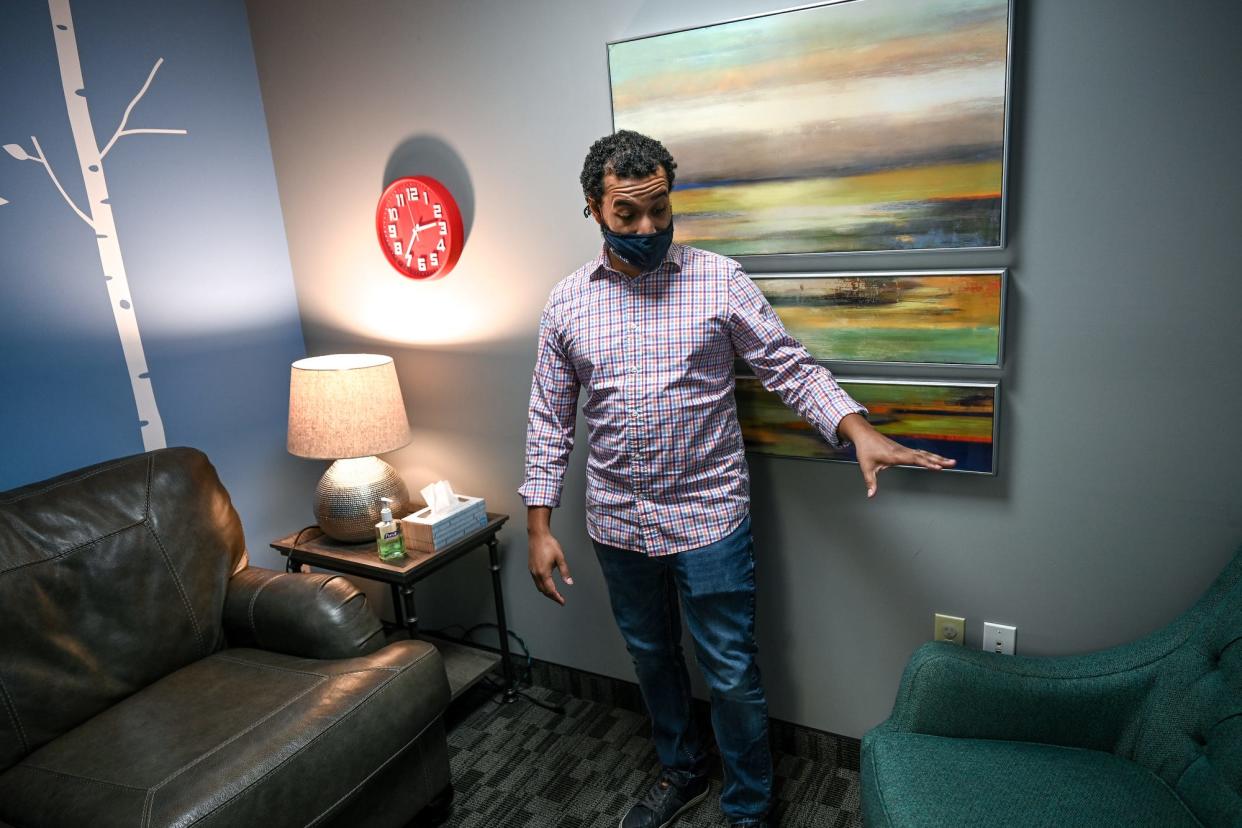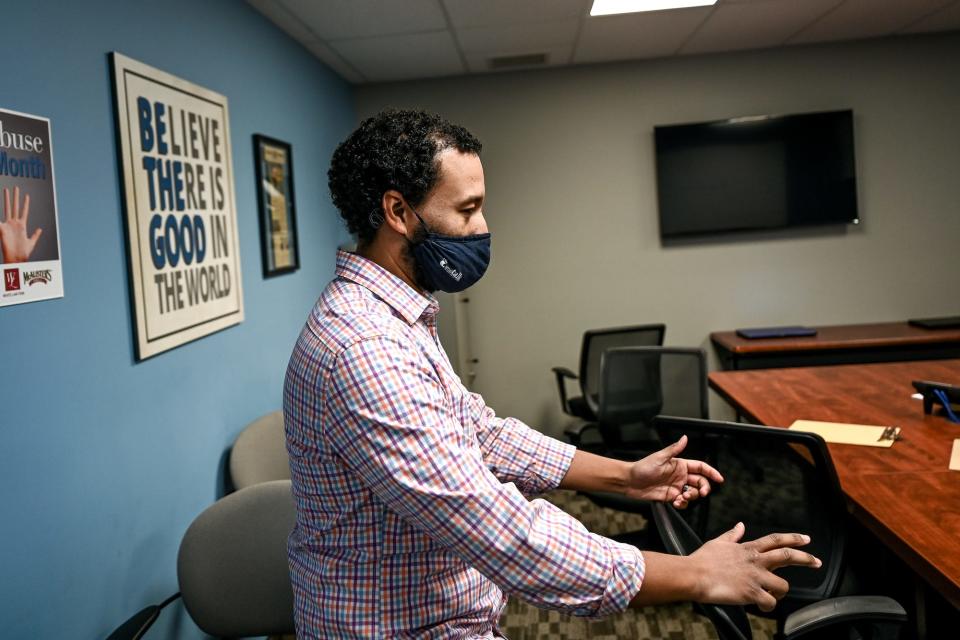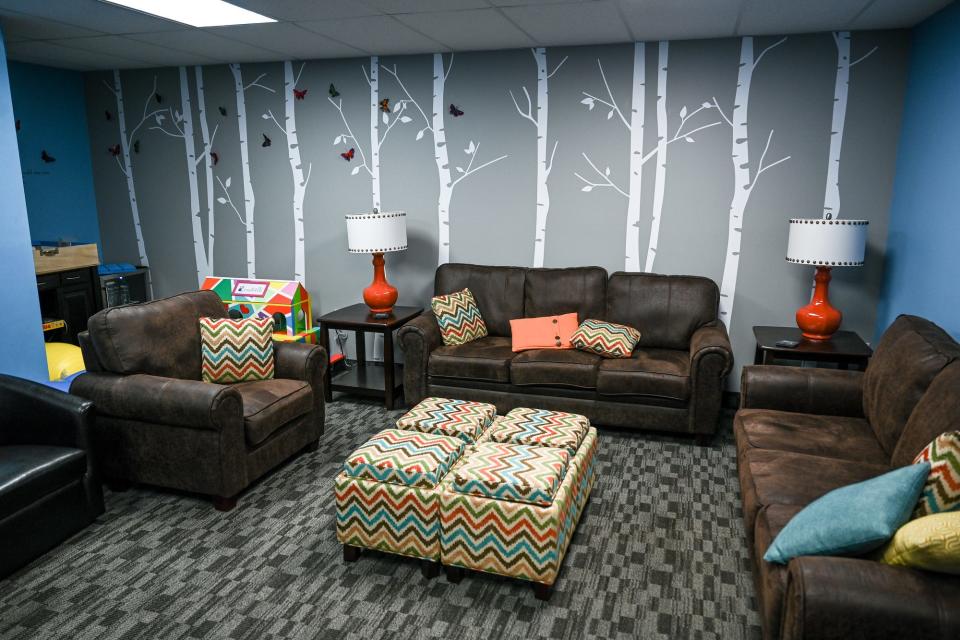Child abuse nonprofit Small Talk raising funds for suicide prevention specialists

As counselors at the child abuse nonprofit Small Talk Children's Advocacy Center saw young people during the pandemic, they noticed something: A staggering number were considering suicide.
Of all the children who received a forensic interview with the center last month, about half were referred for suicide prevention counseling in followups. That's up from just 5% before the pandemic, according to Alex Brace, a therapist and executive director at the center.
Gradually, counselors started assessing suicide risk with children and teens in clinical visits at the center. Those assessments proved so valuable that staff chose to keep them as a permanent fixture when they reopened for in-person counseling this summer.
"The need is continuing to grow," Brace said. "It's not even so much about maintaining what we have now. It's about maintaining and expanding it to meet the need that continues to grow for our communities."
To do that, the center is creating two new full-time positions specializing in suicide prevention: a risk assessment counselor and a grant-funded prevention specialist. The center has already raised $43,000 from an anonymous organization and local businesses for the risk assessment counselor, but needs $11,000 more to reach its goal of $54,000, a number that will raise its annual fundraising goal from $250,000 to $300,000. (Government funding accounts for the other 55% of the center's budget.)

It's been increasingly hard for Small Talk to raise funds over the past two years as donations to nonprofits have dipped, Brace said. Small Talk held its annual charity auction virtually this September due to concerns surrounding COVID-19 cases in Michigan.
Increasingly, Small Talk has benefited from donations by small business owners like Megan Shannon, a carpenter from Holt who recently auctioned off a handmade hickory box benefitting the nonprofit.
Shannon was one of many who admired the center's approach to forensic interviews. Rather than a child being interviewed repeatedly — by police officers, prosecutors, Child Protective Services — children are interviewed just once at Small Talk. Counselors and law enforcement listen in from another room, sometimes feeding questions to the interviewer.
The goal is to limit the number of times a child has to relay their story.
"Our hope is that ... we can get the information that we need without further traumatizing the child," said Mike Cheltenham, chief assistant prosecutor of Ingham County. Before Small Talk, children were interviewed by police who may or may not have been trained forensic interviewers, and interviews were often delayed so they could be conducted in a different jurisdiction, he said.
Tiny Bit of Good: Holt carpenter hosts woodworking classes for women and LGBTQ people
After Small Talk's forensic interviews, staff consult with parents or caregivers about next steps, from free counseling at the center to identifying problems at home.
"Time and time again, parents don't know what to do in these situations," said Aubree Vance, director of forensic interviewing and one of two forensic interviewers at the center. Vance got involved with the nonprofit in 2015 after seeing its impact.

Small Talk averages 250 cases a year from Ingham and Eaton counties.
Brace believes there may have been a spike in pandemic-era abuse due to children being isolated from mandatory reporters — social workers, educators, law enforcement, medical professionals and child care providers.
Cheltenham stopped short of confirming a rise in child abuse during the pandemic, but said "those concerns are (present) for all vulnerable populations living with their abusers. There's a sense that, yes, there are cases where those things did rise."

Vance also anticipates a spike in calls a year or two after the pandemic lets up, since reports of child abuse are often delayed disclosures.
Nearly every one of the center's 11 years in business, new positions have been added to meet the needs of children, Brace said. As a local business owner once put it to him: "Once you know (about child abuse), you can't un-know it. There's no going back. We've got to keep growing in a way that makes sense for us, but that we can also meet the needs for the children we serve, because it's significant. More significant than ever."
To report child abuse, call 911 or (855) 444-3911.
The National Suicide Prevention Lifeline can be reached at 1-800-273-TALK (8255) and the Crisis Text Line by texting TALK to 741741.
Contact reporter Krystal Nurse at (517) 267-1344 or knurse@lsj.com. Follow her on Twitter @KrystalRNurse.
This article originally appeared on Lansing State Journal: Child abuse nonprofit raising funds for suicide prevention specialists

